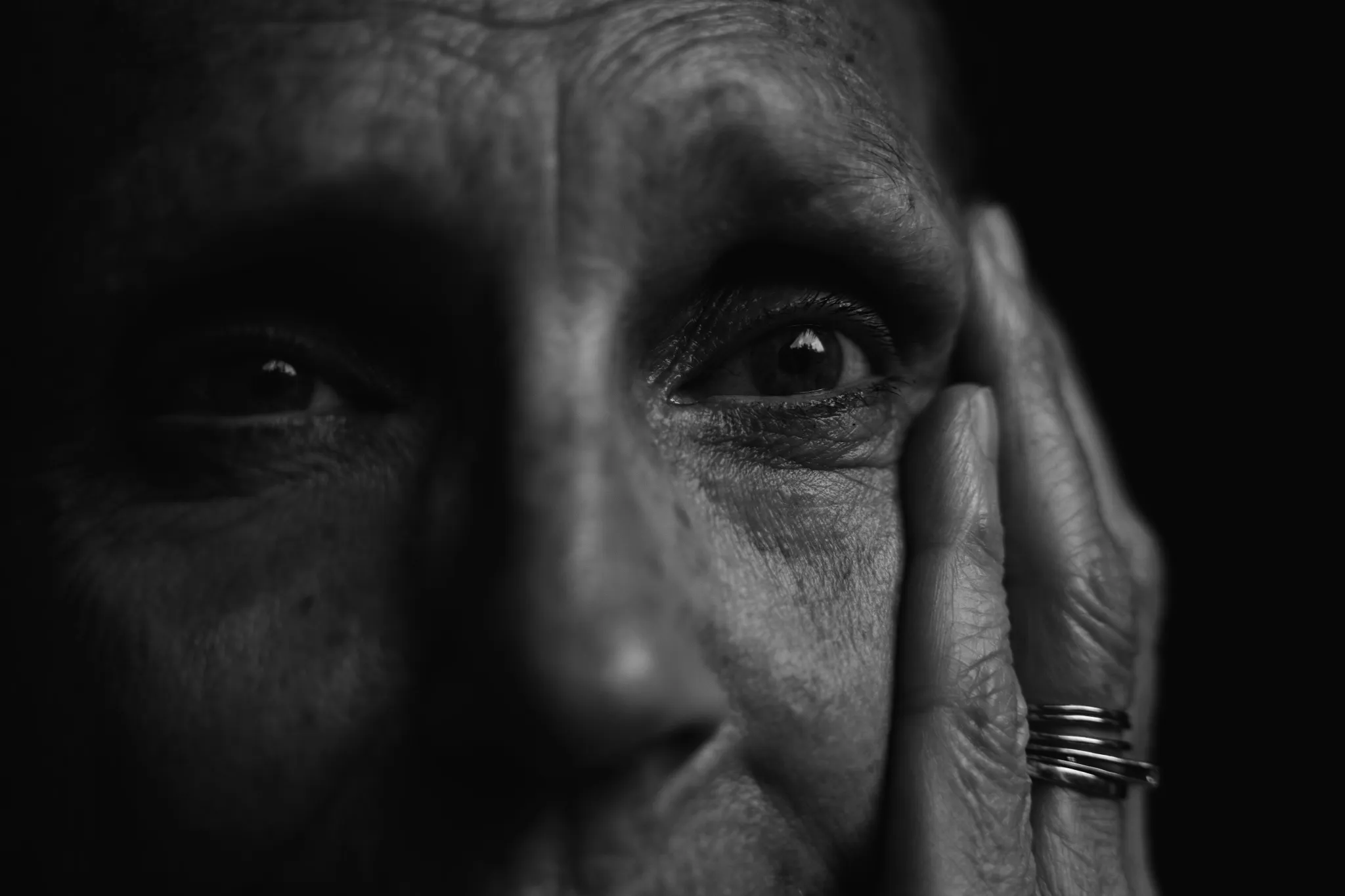As human beings, we often wonder why evil exists in the world if there is an all-powerful, all-knowing, and benevolent God. The notion that God created evil has been one of the most debated theological issues throughout the ages. In this article, we delve deep into the concept of evil, examine the nature of God and free will, explore different theological perspectives on God’s role in evil, and unpack theodicy and the problem of evil. Join us as we attempt to answer the age-old question – did God create evil?
The concept of evil and its origins

The concept of evil has been a subject of philosophical and theological debate for centuries. It is commonly defined as the presence of bad or harmful actions, consequences, or situations. But where does evil come from? Did God create it? These are questions that have puzzled scholars and religious leaders alike.
Some argue that evil is an intrinsic part of the human nature, and that God created us with the capacity to choose between good and evil. This perspective sees evil as a necessary part of the moral framework that allows humans to exercise their free will. Others believe that evil is a result of the human fall from grace, and that it came into existence after Adam and Eve disobeyed God in the Garden of Eden.

However, not all religious traditions attribute the origin of evil to humans. Some believe that there is an evil force independent of God that actively works against God’s will. These beliefs find their roots in ancient Near Eastern religions, where the concept of the devil or an evil force was widely accepted.
Regardless of its origin, evil has become a pervasive and impactful force in the world. It manifests in a multitude of ways, from individual misdeeds to global injustices. Its effects can be seen in the suffering and pain of individuals and groups, and in the moral and ethical dilemmas that face humanity.
Understanding the origins of evil can have implications for a person’s belief in God and the role that God plays in the world. Some find it difficult to reconcile the existence of evil with the notion of a loving and all-powerful God. Others see evil as a necessary part of God’s plan for humanity, one that ultimately leads to the reconciliation of all things.
In conclusion, the concept of evil and its origins are complex topics that have no easy answers. Its existence presents challenges to religious and philosophical beliefs, and its impact can be seen all around us. Understanding the different perspectives on the origins of evil can help individuals develop their own beliefs about the world and their place in it.
(List of SEO keywords: god, evil, creation, morality, theology, philosophy, religion, free will, origin, existence, good and evil, ethics, belief, faith, divine, omnipotence, omniscience, omnipresence, supernatural, sin, suffering, pain, justice, mercy, salvation, hell, heaven, afterlife, spirituality, human nature.)
The nature of God and free will
One of the most debated and controversial topics in theology and philosophy is the question of whether or not God created evil. While some argue that evil is a necessary consequence of God’s creation or a result of human free will, others contend that the existence of evil conflicts with the idea of a benevolent and omnipotent deity.
Central to this debate is the concept of God’s nature and his relationship to human free will. According to traditional Christian theology, God is omnibenevolent, omnipotent, and omniscient. In other words, he is all-loving, all-powerful, and all-knowing. However, the existence of evil seems to conflict with this understanding of God. If God is all-knowing and all-powerful, why does he allow evil and suffering to exist?
One argument is that God created human beings with free will, which necessitates the possibility of evil. In this view, evil is a consequence of human sin and rebellion against God’s will. While God could intervene to prevent evil, doing so would negate the purpose of free will and undermine the moral development of humans. Thus, evil is not directly created by God but is a result of the choices humans make.
However, this argument raises further questions about God’s responsibility for creating beings with the capacity for evil. If God is omnipotent and omniscient, couldn’t he have created beings with free will who would never choose evil? Alternatively, some argue that God’s omniscience means he knows in advance which choices humans will make, including their choices to commit evil. If that is the case, then God must bear some responsibility for the existence of evil.

Other theological perspectives reject the idea that God created evil altogether. Some argue that evil is simply the absence of good and that God created a world with free will and the potential for both good and evil. Others suggest that the origin of evil is not in God’s creation but in the fallen nature of the world caused by the rebellion of Satan and Adam and Eve’s sin.
Ultimately, the question of whether God created evil remains a matter of philosophical and theological debate. However, it is clear that the concept of God’s nature and his relationship to human free will are at the heart of the discussion. Understanding the different perspectives on this topic can provide insight into different theological traditions and shed light on the way people think about morality, ethics, and the nature of existence.
Different theological perspectives on God’s role in evil
Many philosophical and theological discussions have attempted to address the question of whether God is responsible for the existence of evil. There are several perspectives on the matter, and each viewpoint approaches the issue of theodicy differently. Let’s delve into some theological perspectives that have been presented over time.
- Dualism:
Dualists posit that there are two independent forces in the universe, with good and evil being equal and opposite. Therefore, evil is caused by the dark force, while good is created by the good force. This theory traditionally goes against most major religions and is often associated with Gnostic beliefs.
- Monotheism:
Monotheistic faiths claim that there is only one God who is all-powerful, all-knowing, and all-good. Yet humanity still suffers from evil, whether originated by the Devil or by humans. One can approach evil through different theodicies, including:
-
Free Will Theodicy:
This perspective suggests that humans’ ability to make free choices has led to evil’s presence in the world. God created humans with free will and allowed them to have choices, including the option to do evil or wrong. -
Soul-building Theodicy:
This theory assumes that God created evil intentionally to offer a chance for the development of human character and morality. Trials and hardships in life provide a way for humans to develop empathy, learn lessons, and strengthen their faith.
- Pantheism:
This perspective explains evil as an inherent aspect of the universe, representing the process of natural evolution. Pantheists believe that everything is divine and everything that happens in the universe is a result of natural laws. So there is no single entity that is responsible for creating evil.
« Exploring the Divinity of the Holy Ghost in Christian Doctrine: Is the Holy Spirit God?
The Dark History of Inquisitions: Unveiling Religious Persecution and Torture in Medieval Europe »
In conclusion, different theological perspectives provide different answers to the question of whether God is responsible for the existence of evil. While some propose a dualistic perspective, others write off evil as a natural occurrence or as a consequence of free will. Ultimately, the question of the origin of evil continues to be one of the most debated issues in philosophy and theology.
Theodicy and the problem of evil
Theodicy is a branch of theology concerned with reconciling the existence of evil with the belief in a benevolent, omnipotent God. The problem of evil has been debated by philosophers, theologians, and scholars for centuries. It is the idea that the presence of evil in the world cannot coexist with the notion of a morally perfect God.
Theodicy attempts to provide answers to questions like: Why do innocent people suffer? How can a good God allow evil to exist in the world? If God is all-powerful, why doesn’t he eliminate evil?
Many different theological perspectives have emerged in response to the problem of evil. Some theologians argue that evil is a necessary consequence of free will, a gift God bestowed on humanity to allow them to exercise genuine moral autonomy. In this view, humans are not puppets controlled by God but free individuals who are responsible for their actions. Others argue that evil is a result of the Fall, a reference to the story of Adam and Eve in the Bible.

There are also those who believe that evil is a test of faith and that humans must endure suffering to prove their devotion to God. This perspective is commonly held in many religions, including Christianity, Judaism, and Islam.
Another response to the problem of evil is to argue that evil is an illusion. In this view, evil is not a thing in and of itself but rather a lack of good. God is the source of all goodness, and evil arises when humans turn away from God and choose to act according to their own selfish desires.
Despite these various responses, the problem of evil remains one of the greatest challenges to religious belief. Theodicy is an ongoing debate, and different theologians and scholars continue to offer new perspectives on how to reconcile the existence of evil with the belief in a good and loving God.
The role of suffering in religious beliefs
Suffering is a universal human experience, and it’s an issue that is often addressed in religious beliefs. When confronting pain, people often turn to religion for comfort and support. However, this raises challenging questions about the nature of morality, free will, and God’s role in the world. The debate about the origin of suffering is complex and diverse, with many philosophical, ethical, and theological perspectives. Here are some of the key ideas:
-
Suffering may be a part of God’s plan:
Some religious traditions that believe God created evil and suffering argue that these experiences have a purpose that is beyond human comprehension. They often hold that suffering is necessary to help humans grow and develop spiritually, and to learn important lessons about life. Suffering is seen as a way of testing and strengthening people’s faith, and as a means of purifying and refining the soul. -
Suffering is an effect of free will:
Other religious perspectives maintain that humans have free will, and that evil and suffering are consequences of the choices that individuals make. They argue that God created humans with the capacity for moral choice because without them, we would be incapable of true love and goodness. Therefore, humans are responsible for the suffering in the world, rather than God. -
Suffering is a natural part of life:
Some religious beliefs suggest that we should accept suffering as part of the human condition, and that it cannot be avoided. They might emphasize the impermanence of life, the inevitability of death, and the need to learn to live with pain and loss. In this view, there is no one to blame for suffering, and the goal is to find peace and acceptance in the midst of life’s challenges. -
Suffering is a test of faith:
In some religious beliefs, suffering is seen as a way of testing a person’s commitment to their faith. They argue that God allows suffering to see if people will remain faithful to their beliefs in the face of adversity. They might also suggest that suffering can be a means of purifying one’s soul and lead to greater spiritual rewards in the afterlife.

Regardless of what position one takes, the experience of suffering remains a difficult and challenging aspect of human life. Religious beliefs offer hope and comfort in the face of suffering, and they can help people find meaning and purpose in their experiences. At the same time, they can also raise difficult theological and philosophical questions about the nature of God and morality.
The impact of belief in God’s creation of evil on human behavior
The belief in the existence and nature of evil varies greatly among different religions and cultures. While some may attribute the cause of evil to a divine being, others may view it as the result of human actions or simply a part of the natural world. One of the most debated beliefs surrounding evil is whether God, as an all-powerful and all-knowing being, created evil or not.
For those who believe that God created evil, the impact of this belief on human behavior can be significant. It can shape one’s understanding of morality, ethics, and even the nature of the human condition.
Believing that God created evil can lead to a sense of fatalism, wherein individuals may feel powerless to change the course of their lives or the world around them. This sense of fatalism can be intertwined with beliefs about predestination and the idea that everything that happens is part of God’s plan.
On the other hand, those who do not believe that God created evil may view it as a result of human choices and actions. This perspective can lead to a sense of personal responsibility and the belief that individuals have the power to make a difference in the world.

Furthermore, the belief in God’s creation of evil can also impact how individuals understand suffering and pain. Some may view it as a punishment for sin or a means of testing one’s faith, while others may attribute it to natural causes or the result of human actions. This can influence how individuals respond to suffering, whether through accepting it as a part of life or taking action to change it.
In conclusion, the belief in God’s creation of evil can have a significant impact on human behavior and understanding of morality, ethics, and suffering. It is a complex and deeply philosophical topic that has been debated for centuries, with no easy answers.


















